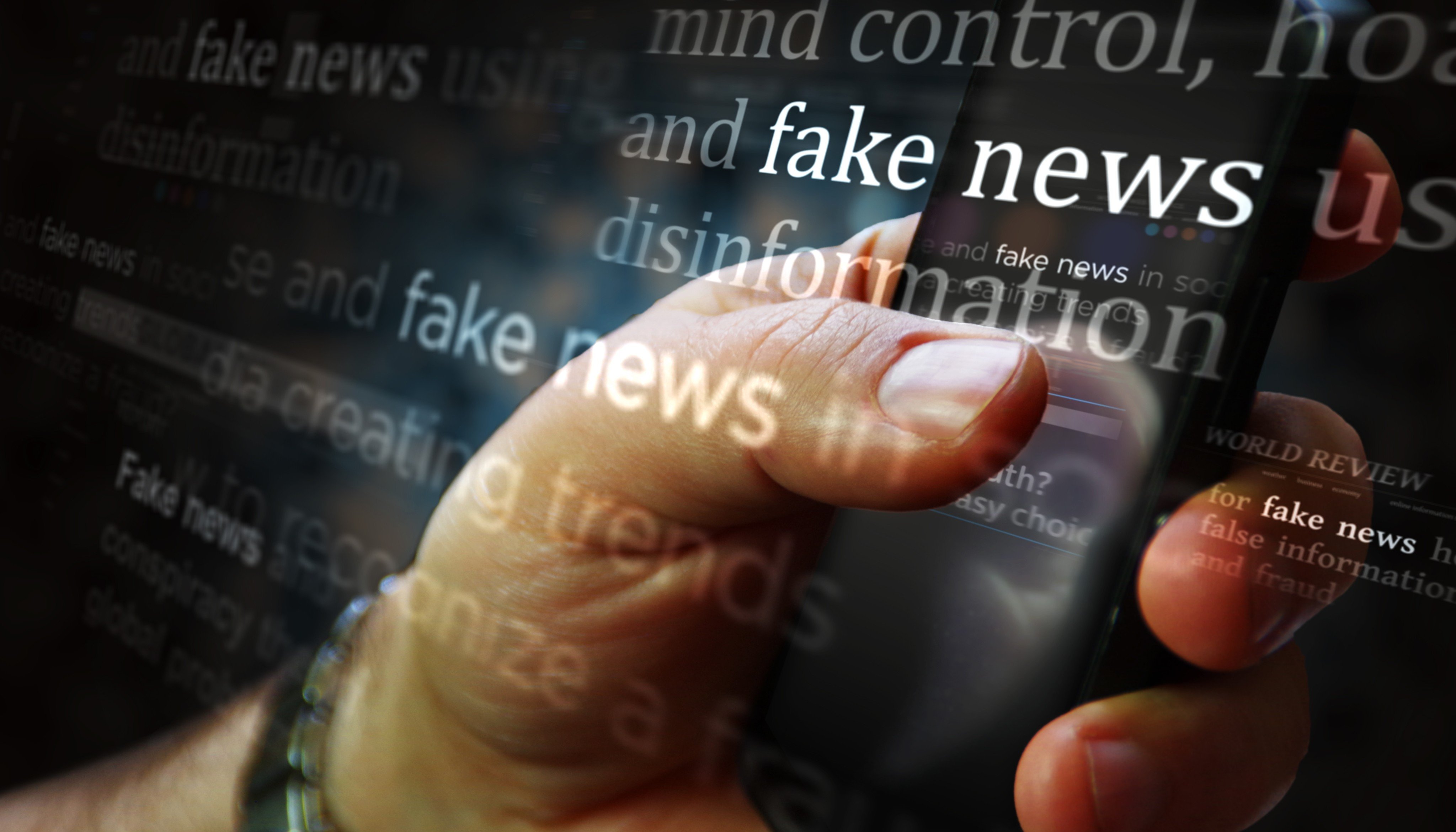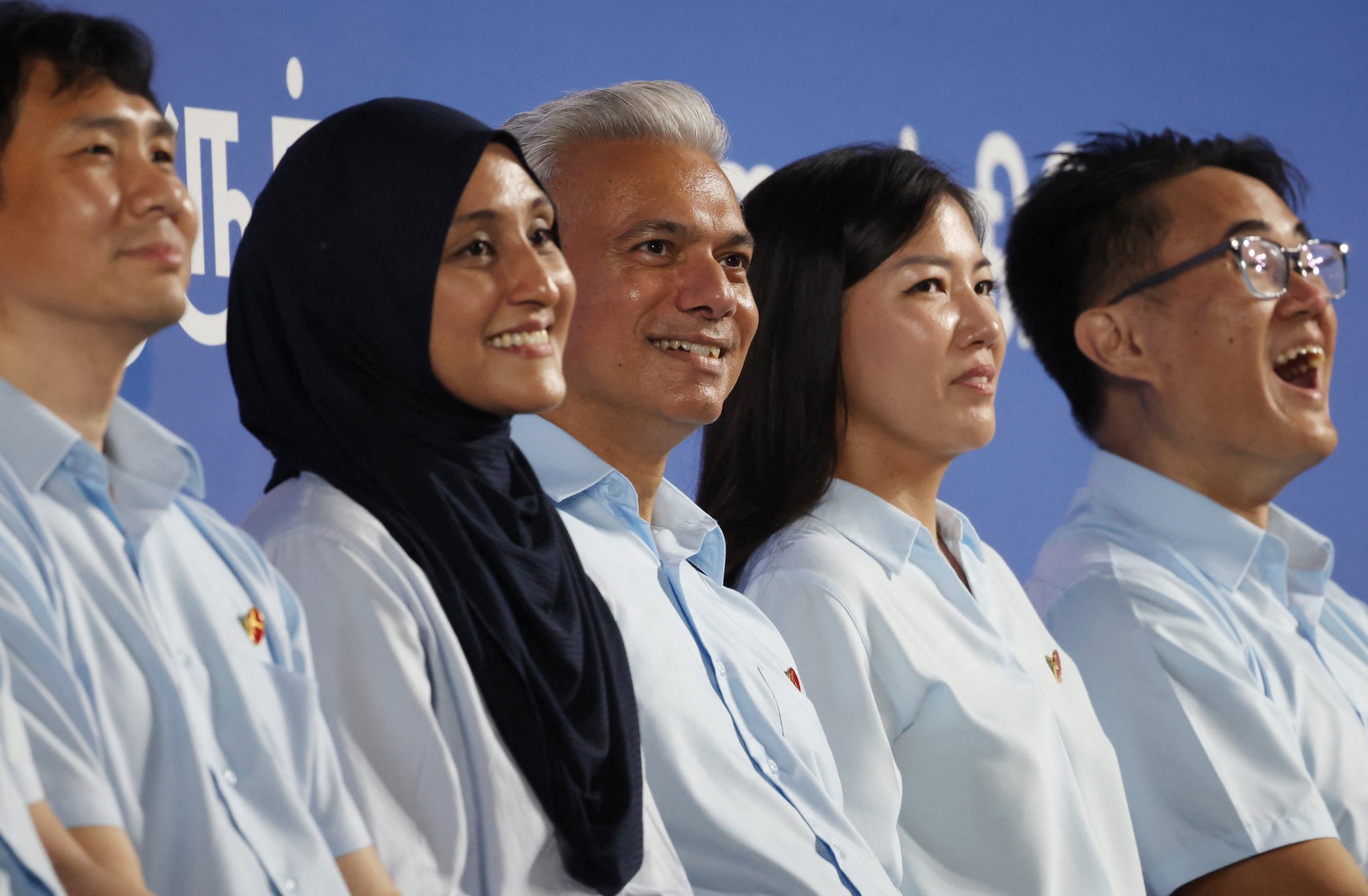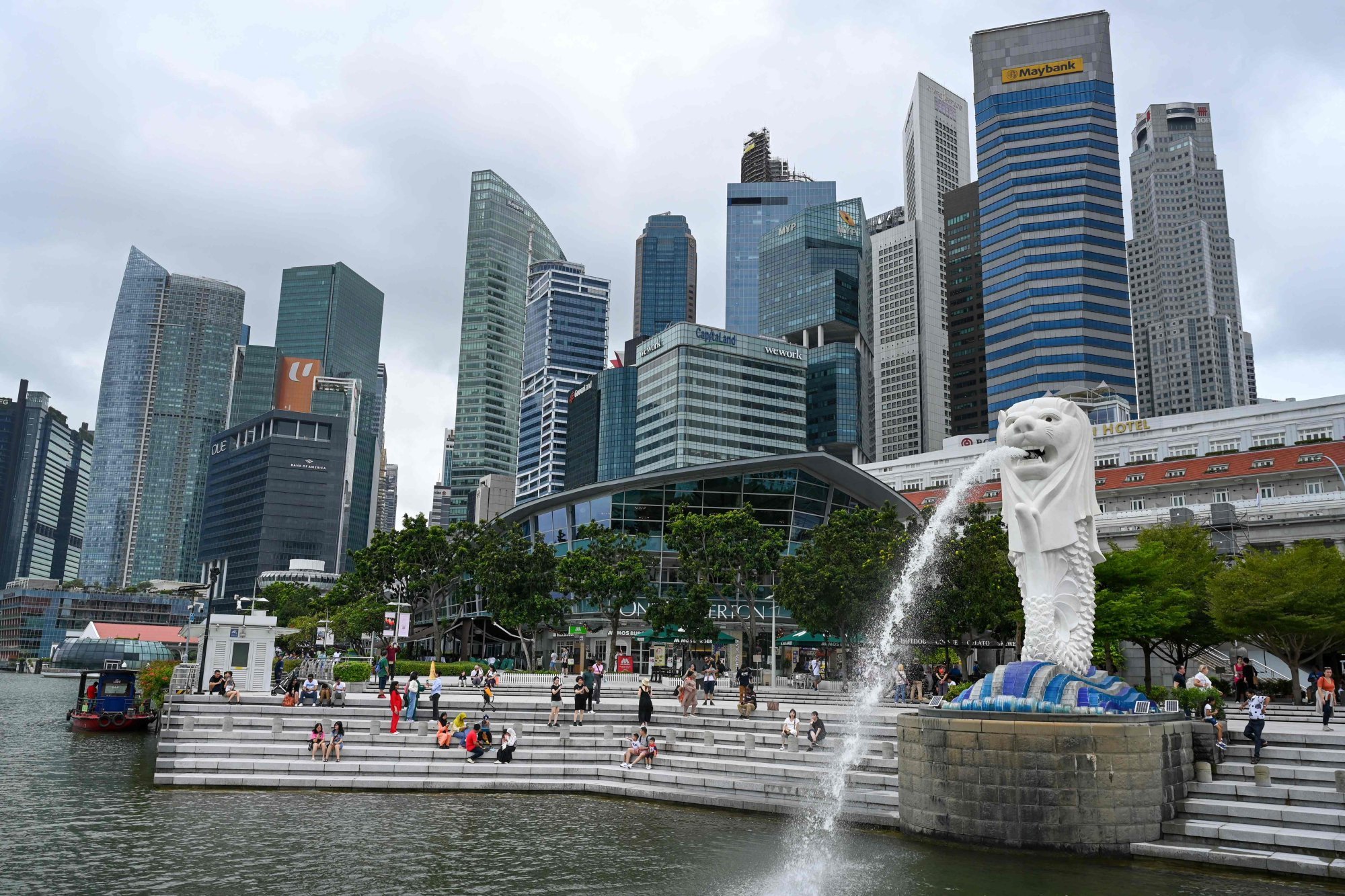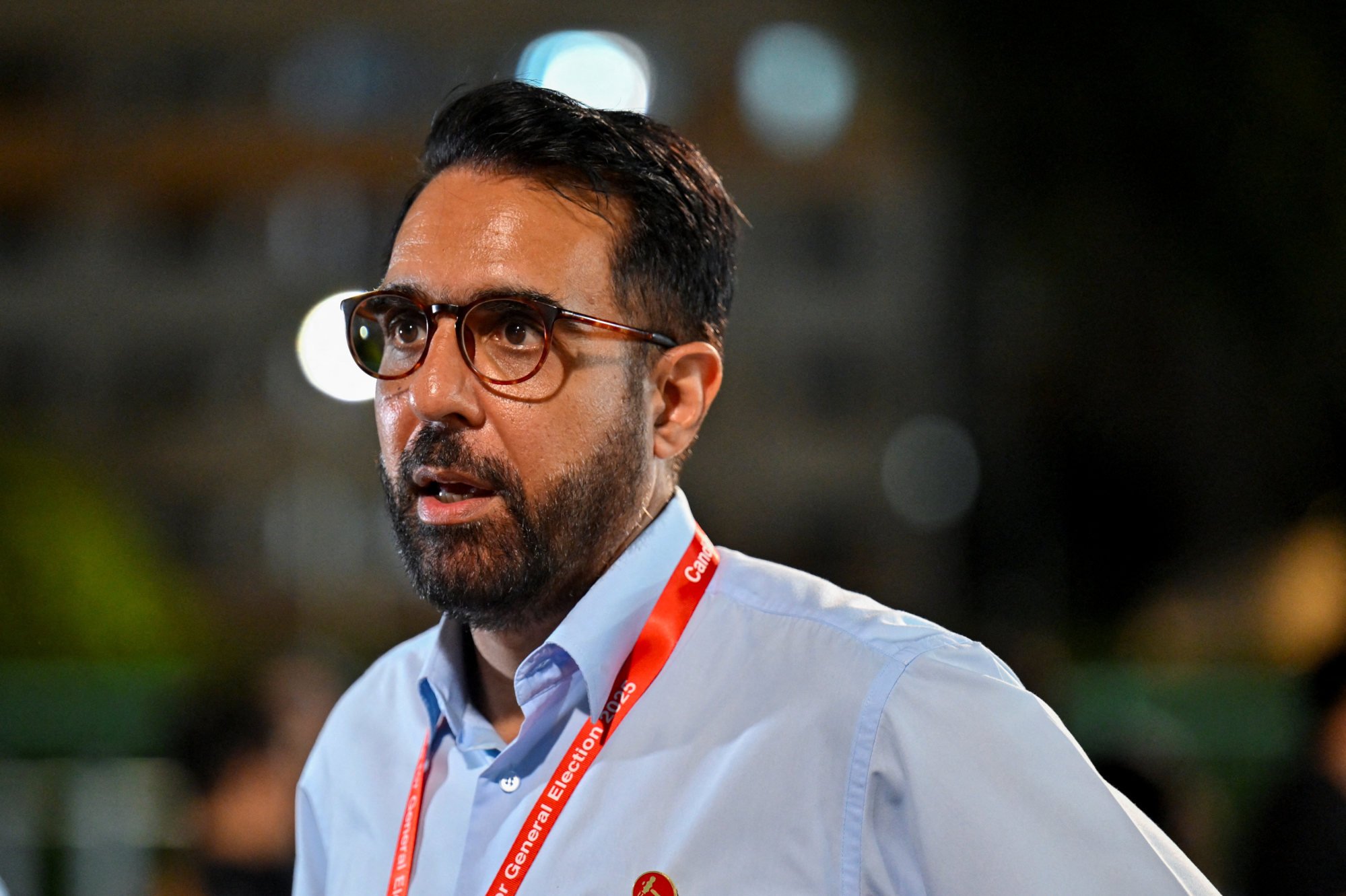How is Singapore’s fake news law applied?
Correction orders against misinformation are issued in the ‘public interest’ under the Protection from Online Falsehoods and Manipulation Act

Singapore wrapped up its general election earlier this month without a single correction order issued against fake news, but a resurfaced case of a candidate being misquoted on the campaign trail has sparked discussion on how the city state’s misinformation law is applied.
The Protection from Online Falsehoods and Manipulation Act (Pofma) introduced in 2019 and an election advertising bill – enforced just in time for the May 3 poll – guard against misinformation and digitally manipulated content, respectively, in Singapore.
Under Pofma, ministers, or alternate authorities for them during general elections, can issue directions to individuals to put up correction notices online to rectify falsehoods, classified as a statement of fact that was false or misleading, if this is in the “public interest”.
Analysts told This Week in Asia the definition of “public interest” meant that Pofma did not apply to all forms of misinformation, therefore, in the nine-day sprint to the recent election, the lack of any orders did not mean there had been no fake news.

An example of misinformation that was not flagged by authorities but by private parties was the misquoting of opposition Workers’ Party (WP) candidate Siti Alia Abdul Rahim Mattar by pro-establishment Facebook page Singapore Matters.
In a since-deleted post, the page published a picture of Alia, quoting her as having said: “The Israel-Palestine conflict was more important than bread-and-butter issues.”
On May 20, Singapore Matters subsequently removed the post after an “internal review”, stating Facebook had flagged the quote as inaccurate.
At a rally on April 24, Alia said Singaporeans wished to see their MPs for bread-and-butter issues and to “discuss the effects of certain laws or the government’s positions on certain global issues”.
While neither Pofma nor the new law involving digitally manipulated content was invoked in that case, international news agency Agence France-Presse issued a fact check on its website on May 5, after the election results had been decided. The ruling People’s Action Party team led by Deputy Prime Minister Gan Kim Yong won with 55.17 per cent of the vote in the Punggol constituency.
In a Facebook post on May 18, WP chief Pritam Singh noted that the Singapore Matters page was called out by international media for peddling falsehoods during the general election and had deleted the post in its “self-interest”.
“The real agenda or motive for peddling a falsehood one day before ‘cooling-off day’, close to polling day, would not have been lost on anyone,” Singh argued.

What is in public interest?
Anti-fake news laws are common across the region. In Thailand, the Computer Crime Act criminalises the dissemination of false information that is likely to affect national security, public safety, national economic security or public infrastructure, or cause public panic.
While Malaysia repealed its controversial Anti-Fake News Act in 2019, the Communications and Multimedia Act prohibits individuals from using any network service to create and transmit any communication which is, among other things, false or offensive in character with the intention of annoying or harassing another person.
In Singapore’s 2020 election, Pofma was invoked for 16 correction directions against the Facebook pages of political parties, Facebook users and news websites, including national broadcaster CNA, among other entities. The orders covered hot-button issues including Singapore’s response to Covid-19 infections among foreign workers living in dormitories, the population projection and government spending on foreign students.
Alton Chua, an associate professor of communications at Nanyang Technological University, said: “[Pofma] is only invoked when there is a threat to public interest or to public confidence in the government or its agencies.”
However, Ja Ian Chong, an associate professor of political science at National University of Singapore, questioned the definition of “public interest” under Pofma and argued that the entirety of the election process and the accuracy of information that voters get should be a matter of public interest, regardless of which party is being misconstrued.
“One of the key aspects of democracy working is that you have an electorate that’s able to make informed choices, so the distortion prevents the making of informed choices. This is where the issue of public interest is up for debate,” Chong said.

In the case of Alia, Chua said authorities did not think Pofma was warranted, but if it was an official misquoted on an issue of public interest, the situation could have been different. “The purpose of Pofma is to protect the public from falsehoods rather than clearing the names of individuals.”
Eugene Tan, an associate professor of law at the Singapore Management University, agreed. “As the requirements prescribed in Pofma were not met, in particular, the public interest requirement, Pofma did not come into the frame at all.”
This Week in Asia has reached out to the Elections Department to ask if the rules were breached for Alia’s case involving Singapore Matters. The WP declined to comment on whether it had made a request to the department.
Analysts also point out in the latest election, local media reported hundreds of fake Facebook accounts were detected during the course of the campaign period targeting both PAP and the WP.
The Ministry of Digital Development and Information in the lead-up to the polls said it was monitoring these accounts for foreign interference and urged the public to be discerning.
Posts by foreign Facebook users were also later blocked in Singapore by authorities during the campaign period for attempting to interfere with the election.
They comprise Iskandar Abdul Samad, the national treasurer of Parti Islam SeMalaysia, the Islamist party’s Selangor Youth chief Mohamed Sukri Omar, and a user identified as Zulfikar Mohamad Shariff, an Australian citizen who renounced his Singapore citizenship in 2020.
Local media reported that Zulfikar had been critical of the Malay-Muslim MPs while Iskandar had expressed support for WP candidate Faisal Manap.
Authorities said their posts encouraged Singaporeans to vote according to racial and religious lines, and could fracture Singapore’s multiracial and multi-religious harmony.
Under the Parliamentary Elections Act, it is an offence for foreigners to participate in elections activity or publish online election advertising.
Yet Chong noted that another pro-establishment page, Critical Spectator, which is run by Polish national Michael Petraeus, was not flagged in this election despite Facebook removing the page in the 2020 poll after complaints from opposition candidates that a foreigner was interfering with domestic elections.
During the campaign period, the page had made posts criticising the WP for not contesting in Marine Parade-Braddell Heights group constituency and shared a video by another account which pointed out inconsistencies in the reasons WP candidate Andre Low had given for running in the Jalan Kayu single-seat ward.
“If you’re supposed to be treating these different accounts even-handedly, then the question is, why is it that relatively little is done about these kinds of accounts,” said Chong, arguing for laws to be “party agnostic” to protect not a single political party but Singapore’s entire political system.
‘Major on the minor’
On why 2020 had more Pofma corrections, experts noted that the candidates in 2025 had been careful not to trigger directions such as by clearly phrasing criticisms as opinions, which are exempt from Pofma.
Chua argued that the candidates in 2020 could have been testing the limits of what could be said, while authorities were “eager to weed out any trace of falsehood” since it was the first election in which the law was enforced.
“After the election, candidates may have walked away thinking that being slapped with Pofma hurt their chances at the ballot box. Hence in GE2025, they became more careful in putting out statements, which gave no triggers for the authorities to invoke Pofma,” Chua said.
Chua noted that he expected the usage of Pofma to fall as people became more aware of the consequences of sharing misinformation, while authorities understood that Pofma could be counterproductive if overused.
Similarly, Tan Ern Ser, adjunct principal research fellow and academic adviser at the Institute of Policy Studies, argued that the government would not want to “major on the minor”, “especially in the context of an election, where a corrective order could be interpreted as an attempt to silence critics, while the likely back and forth involved in triggering a Pofma could be weaponised”.
Yet, Eugene Tan pointed out that it was a positive that the fake news laws were not deployed in the election despite tangible threats.
“But this is by no means a guarantee that the laws would not be invoked in the next general election. What is crucial is that the notion of responsible speech was given effect to, whether deliberately or otherwise,” he said.